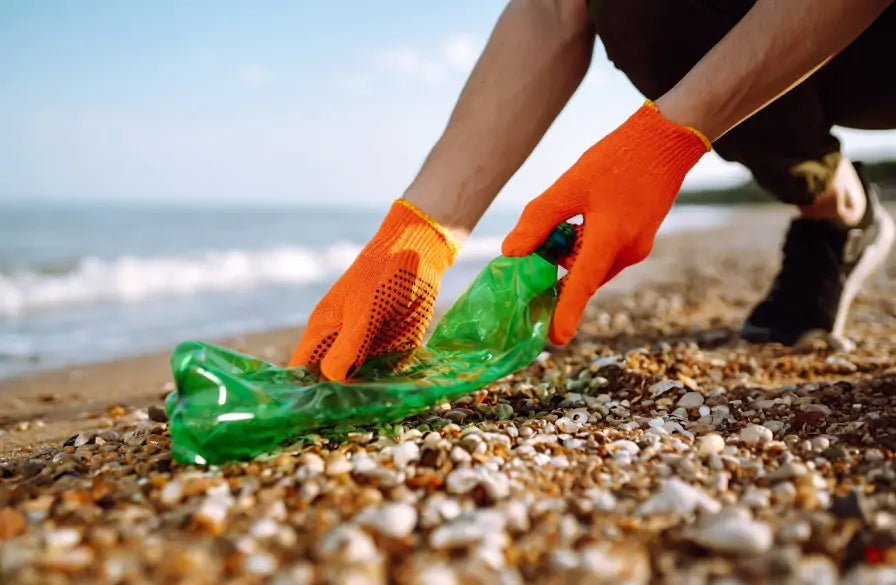Your basket is currently empty.
Shop NowThe Ocean Rescue Campaign

Why Sky’s Plastic Bottle Recycling Scheme is Not a Drop in The Ocean
Campaigners have suggested that a deposit scheme for plastic bottles could change the way Britain recycles. They say that evidence shows that double the number of plastic bottles could be recycled if a small deposit charge was added each time a bottle was sold. So, it would work by adding 10p to the cost of a drink, which would then be refunded when the customer returned the bottle for recycling.
Deposit-return schemes have been on the radar for a long time but they have been criticised by those in the packaging industry who said that a scheme would be expensive and would undermine the recycling and collection systems that are already in place.
Norway vs the UK
Norway has a very successful deposit-return scheme for plastic bottles, and a massive 96% of bottles sold are returned to be recycled. There’s a 10p deposit charge on 500ml bottles and a 25p charge on 2.5 litre bottles. Customers get the money refunded when the bottles are returned to where they bought them. If any bottles remain unreturned, the deposits are paid towards helping to fund the system.
The type of plastic used to make plastic bottles, PET, has a high value, and keeping it separate from other kinds of recycling prevents it from being contaminated, and makes the material all the more valuable. Using this purer plastic to make new products saves oil and energy overall.
Norway had a deposit-return scheme on glass bottles before the advent of plastic bottles, like the UK, but they kept the scheme running, whereas the UK didn’t.
In Norway, shops that sell bottles have to collect the empties, and shop owners are paid for the trouble. Larger stores give customers money off vouchers in return for bottles, or donate to charity.
In the UK, there is a stark contrast. Half of the 35 million plastic bottles sold aren’t recycled. Campaigners have called for the introduction of a deposit return scheme to help boost recycling rates and to help cash-strapped local authorities to save money on collection and clearing up dumped waste.

Sky’s Ocean Rescue Campaign
Sky TV is using its voice and influence to inspire people to take action to protect the environment. They will be making a documentary to bring the issue of the health of our oceans to the forefront of people’s minds. The campaign will focus particularly on the effect of plastic on our oceans, and how people can mak
e a difference.
Sky are doing their bit in-house too. They are using less materials for their products, ensuring more products are made from recycled material, and banning the use of single-use plastics like plastic cups and straws.
Why have Sky started the campaign?
Their previous rainforest rescue campaign was a huge success. It saved 1 billion trees in Brazil, and now they want to follow their success with the Ocean Rescue campaign.
The message of Sky’s campaign is that the destruction of our oceans can’t go on, as they make up ¾ of the planet. We depend on the ocean for food and for the air we breathe.
Each minute, a truck load of plastic is tipped into the world’s oceans, and it doesn’t decompose. It is damaging to wildlife that get caught in it or eat it, and to us, as it holds many toxins that can end up in our food. Because the issue affects us all, says Sky, we all should work to protect the oceans.
The royal seal of approval
The Prince of Wales has backed Sky’s campaign, and said that the build-up of plastic in the oceans was ‘one of the most troubling environmental trends’. He highlighted that everyday products such as plastic bags, straws and bottles are the blight of our rivers and oceans, and gave his support to the idea of a deposit-return scheme to tackle the problem of plastic entering our waters. The prince highlighted the successful deposit-return schemes in Sweden, Belgium, and Germany, and said he couldn’t fathom why the UK had not followed suit with a similar scheme.

How you can get involved
The message is that anyone can help to make a difference, it doesn’t have to be difficult.
Use less plastic
Use refillable water bottles
Use a bag for life instead of getting a new bag every time you go to the shops.
Join in with a beach cleanup in your local area.






